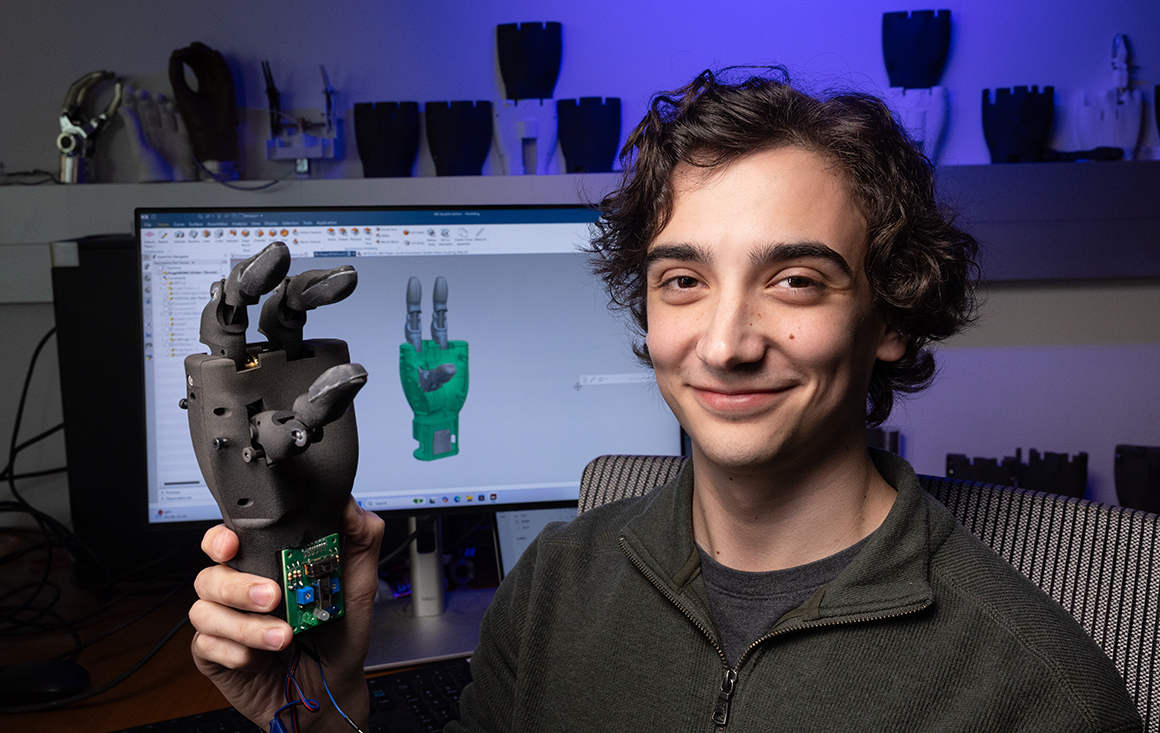Believing in Second Chances

Last year, Californians passed Proposition 36 in a landslide election, severely increasing the penalties for theft and drug crimes. After years of viral videos of Walgreen’s smash and grab robberies and shocking reports from the opioid crisis in San Francisco’s Tenderloin District, voters in the fiercely blue state had decided enough was enough.
But however reasonable this “tough on crime” perspective may seem, Elsa Chen has seen the disastrous, long-term impacts of policies that arbitrarily label certain people as irredeemable.
“I was working at the RAND think tank shortly after President Clinton signed the 1994 ‘three-strikes’ crime bill, which led to skyrocketing incarceration rates,” she recalls. “During that time, Democrats and Republicans alike were falling over each other to be tougher on crime. This had huge impacts on already marginalized communities.”
During the 1990s, Chen spent a lot of her youth around New York City at a time when conversations about racism and crime often defined the 24-hour news cycle. Inspired by Spike Lee’s 1989 film “Do the Right Thing,” Chen did her undergrad thesis on Korean-African American relations in Flatbush, Brooklyn, and then moved out to work in the LA DA’s office following the 1992 Rodney King riots to understand the impact of race and gang affiliation in prosecution work.
Despite being so inspired by people, Chen’s approach has always been distinctively data-driven—specifically, using data to contextualize the impact policies have on communities.
She still uses this approach today as a professor of political science at Santa Clara University. Here, Chen’s research on the impact of “clean slate” laws emphasizes the importance of compassion and humanity in criminal justice policy.
Forgiveness as policy
In 2019, over 71 million Americans had some sort of criminal record, and there are over 42,000 state and federal regulations that make it challenging for this huge number of Americans to access opportunities for a better life. Clean slate laws were designed to alleviate these burdens, automatically expunging a range of eligible criminal records—for example, records for those who have completed their sentence and have not re-offended in a certain number of years.
While different parties often have different approaches to criminal policy, clean slate laws are surprisingly non-partisan. The first state to pass this kind of law was politically-divided Pennsylvania in 2018, followed by deep-red Utah and consistently-blue New Jersey in 2019.
In these states, Chen explains, the policy was initially proposed as a workforce development opportunity, as the only thing standing in the way of employers hiring qualified people desperate to work was the stigma and liability associated with hiring someone with a criminal record.
“Research has shown that people who haven’t reoffended in seven years after their last offense have the same risk of offending as people who’ve never offended. These people are not dangerous; they have too much to lose,” Chen stresses. “Being able to hire people with expunged records is a huge benefit to our economy—but perhaps more importantly, it’s a basic human dignity.”
Beyond economic need, many clean slate laws also address flaws in the justice system that have historically disproportionately targeted people of color and low-income folks. As Chen explains, there are thousands of innocent people sitting in jails across this country. Maybe they were in the wrong place at the wrong time or subjected to over-policing, but either way, they can’t leave because they can’t afford to post bail, or they decided to take a plea deal because serving a small sentence was less costly than going through a prolonged trial and losing.
And a conviction isn’t the only thing that leaves a permanent record.
If someone was arrested and the charges were later dropped, they were charged with something that’s no longer a crime (like cannabis possession), or the charges were part of sealed juvenile record—all of that can still jeopardize a person’s ability to get occupational licenses, access housing and education, or even volunteer at their child’s school.
Lastly, clean slate laws have also resonated in more religious communities because of the intrinsic belief that even those convicted and sentenced to prison for serious crimes should have the chance to turn over a new leaf after they’ve served their time.
“They’ve been punished already. Why do they have to be punished forever?” Chen muses. “Do we not believe in forgiveness, rehabilitation, and reconciliation? I teach at a Jesuit university, and I know these are basic Christian principles.”
If these people can change, she says, then our policies must give them equal and just opportunities so they can fully reintegrate and participate in society.
15 million lives, changed
Since beginning her research into the impact of clean slate laws, Chen and her colleagues Ericka Adams and Sarah Lageson at San José State University and Northeastern University, respectively, have received over $866,000 in grants to better understand whether eligible people know about these new laws, the efficacy of the laws’ rollout, and the lived impact of a cleared record.
The first part of their study involved interviewing roughly 180 people across four Clean Slate states. The second part of the study—about to commence—will send surveys out to 1,500 people across 5 states and interview even more people across the 12 states that have now passed clean slate laws. This data will document just a fraction of stories from the over 15 million people in these states who might be eligible for full or partial record sealing.
While expungement options have already existed in several of these clean slate states before the passage of these laws, Chen’s research has shown that most eligible people couldn’t complete the process because it was too costly or time-consuming.
Clean state laws cut that red tape by automatically expunging these records, however, rollout has been slow and inconsistent, with many people not even being told that their records have been cleared.

Chen remembers one Zoom interview with a Pennsylvanian man who had a criminal record. After describing his offense and when it occurred, she told him to go to the state government’s clean slate website and type in his information.
“And he said, ‘there’s nothing there!’” she recalls. “And you could see, his mind was blown. He said, ‘Maybe I’ll apply for that promotion then.’ It was powerful to see how life-changing that news was to him.”
Inspiring the next generation
Even with the hope promised with a life after expungement, many of these research interviews can still weigh heavily on the hearts of Chen’s student researchers.
Growing up near Santa Clara, student researcher Samantha Campos ’25 saw the effects of over-policing on marginalized communities in East San Jose firsthand, and particularly empathized with stories of how one arrest could have huge ripple effects on their families and communities.
“The realities can be devastating, and it can be hard work to go through these interviews, but that’s why [Dr. Chen’s] research resonates so much for me. I really do feel like people are deserving of second chances, and with this kind of work, you have to believe in that fundamentally,” Campos says.
Campos is also currently in Chen’s senior seminar course, which took students to the local courthouse and jail, San Quentin Rehabilitation Center, and a county re-entry resource center. Chen made it clear to Campos and the rest of the class that these field trips could be an uncomfortable learning experience, but making her students angry was the goal.
Campos remembers Chen saying: “I want you to be so pissed off you feel like things have to change.” And, since then, Campos has taken those words to heart, inspired to follow Chen’s footsteps in policy research.
“Dr. Chen made me realize that if it’s not me doing this research, then who will? She’s absolutely who I aspire to be—not just in terms of academic achievements, but also just being an amazing mentor who makes the best cookies and wears the coolest shoes.”
Santa Clara's Department of Political Science introduces students to the analysis of political behavior, values, institutions, and governments. It also offers preparation for various graduate and professional studies and for careers in public service, education, and the private sector.


